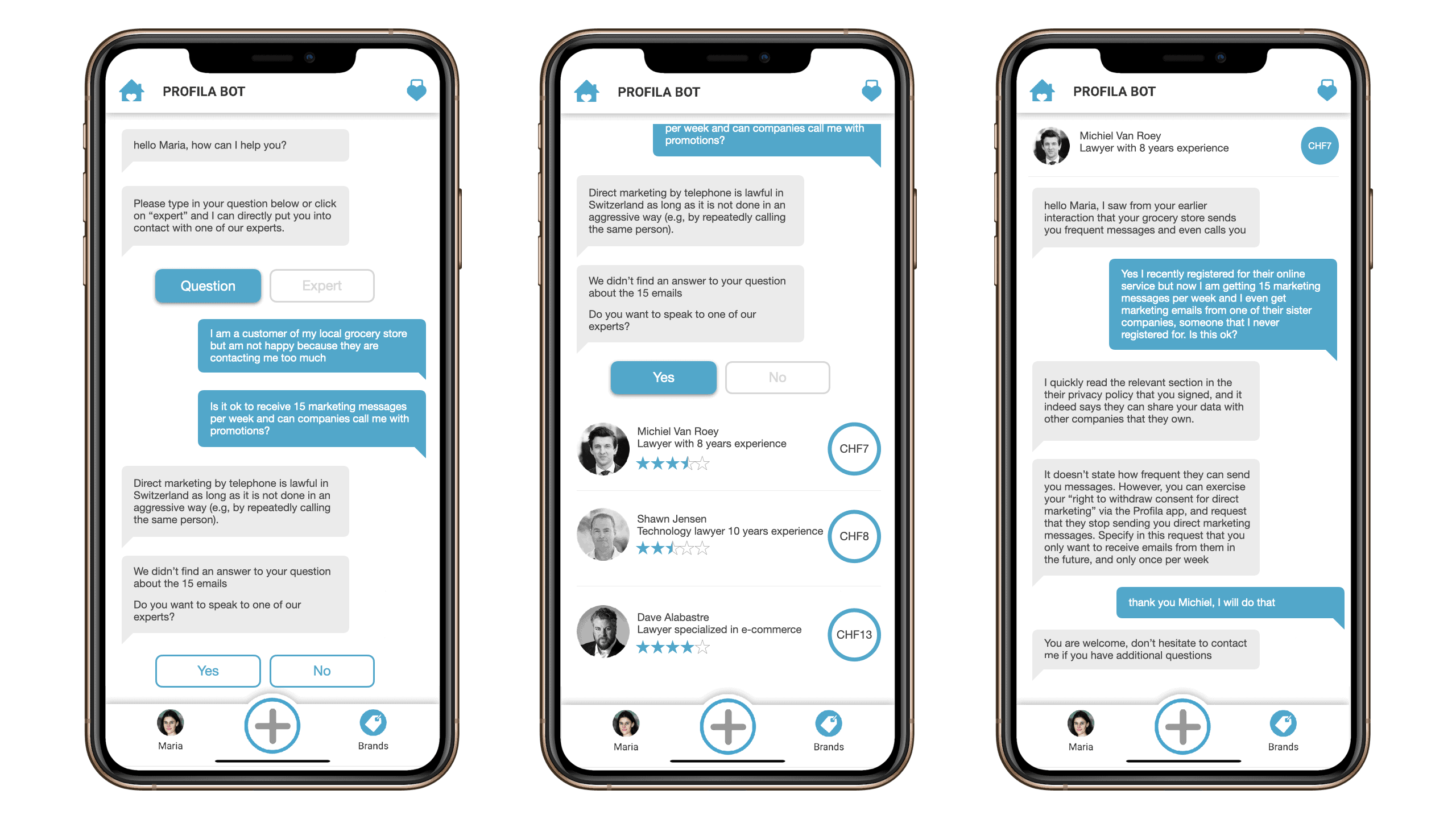University develops "AI lawyer" for legal issues
Data usage regulations of companies are often a book with seven seals. An intelligent digital assistant is designed to provide laypersons with comprehensible information on data protection issues or put them in touch with flesh-and-blood lawyers. The Lucerne University of Applied Sciences and Arts is developing this "AI lawyer" together with the data privacy platform Profila.

Maria and Daniel have signed up for the online delivery service of a supermarket chain and in return have agreed to the company's data usage conditions - a long document that is difficult to understand. From now on, to their annoyance, the family receives almost daily advertisements, not only from the supermarket chain, but also from its subsidiary company. "Are they allowed to do that?" ask Maria and Daniel.
Maria, Daniel and their newsletter are of course fictitious. But presumably everyone knows such examples from everyday life. "Consumers often don't know what companies are allowed to do with their data and how they can defend themselves against unwanted use of this data," says lawyer Michiel Van Roey, co-founder of Profila, an international platform specialising in data privacy, customer loyalty and marketing.
The Lucerne University of Applied Sciences and Arts and Profila are working on a joint project to change this: The researchers want to provide Maria and Daniel with a kind of "AI lawyer" who supports them with expert advice. The lawyer will take the form of a chatbot app for smartphones, comparable to digital assistants such as Siri or Alexa.
The chatbot will provide users with information on how companies use their data in the form of questions and answers that are easy to understand. It can also help them manage their data: "It should be easier for consumers to decide for themselves who has access to their personal data and what it is used for," says Michel Van Roey (e-mail michiel@profila.com) - in the case of Maria and Daniel, whether a subsidiary of the supermarket chain is allowed to send them advertising.
"Legal answers must be precise"
Behind the AI lawyer is an intelligent database being developed at the Lucerne University of Applied Sciences and Arts. The research team led by Alexander Denzler from the Department of Computer Science is "feeding" the database's algorithm with a total of almost one million documents, ranging from legal cases and court rulings to data usage guidelines from authorities and associations to companies' general terms and conditions. The more data the system has at its disposal, the better it learns to respond to specific cases, as Denzler explains.
For computer science researchers, speech recognition poses a particular challenge. This is because most users do not know the legal terminology. "Our artificial intelligence still has to be able to understand what legal issues are behind a question," says Denzler. "When it comes to legal questions, the answers have to be precise."
In case of doubt, the human being takes over
To ensure that the AI lawyer functions properly and does not turn out to be a digital shyster, Profila's lawyers will put the database through its paces by means of test questions. A first version that can reliably understand and answer questions should be ready in the summer of 2022. The more the program is used, the more new cases and thus new data it will be able to access.
Alexander Denzler emphasises that there will always be situations where the AI lawyer will not be able to provide a satisfactory answer because the questions are too specific or have never been asked before. Thus, the AI simply lacks reference data.
In such cases, the chatbot will present users with a short list of female lawyers in the appropriate field who can provide timely information for a fee that is expected to be around CHF 10 per question. The expertise of these professionals will be determined by their CVs as well as their previous activities on the app.
Project funding by the federal government
Once the smart database is ready, the research team will start to build a network of lawyers who will participate in the Profila app. The goal is to complete the project by 2023. The first version of the app will only understand German questions. If it proves successful, Alexander Denzler and Michiel Van Roey hope to develop a version for other national markets in a second step.
The federal innovation agency Innosuisse is funding the two-year project with CHF 550,000. The total project volume is 950,000 Swiss francs.
Press release Lucerne University of Applied Sciences and Arts - Computer Science









